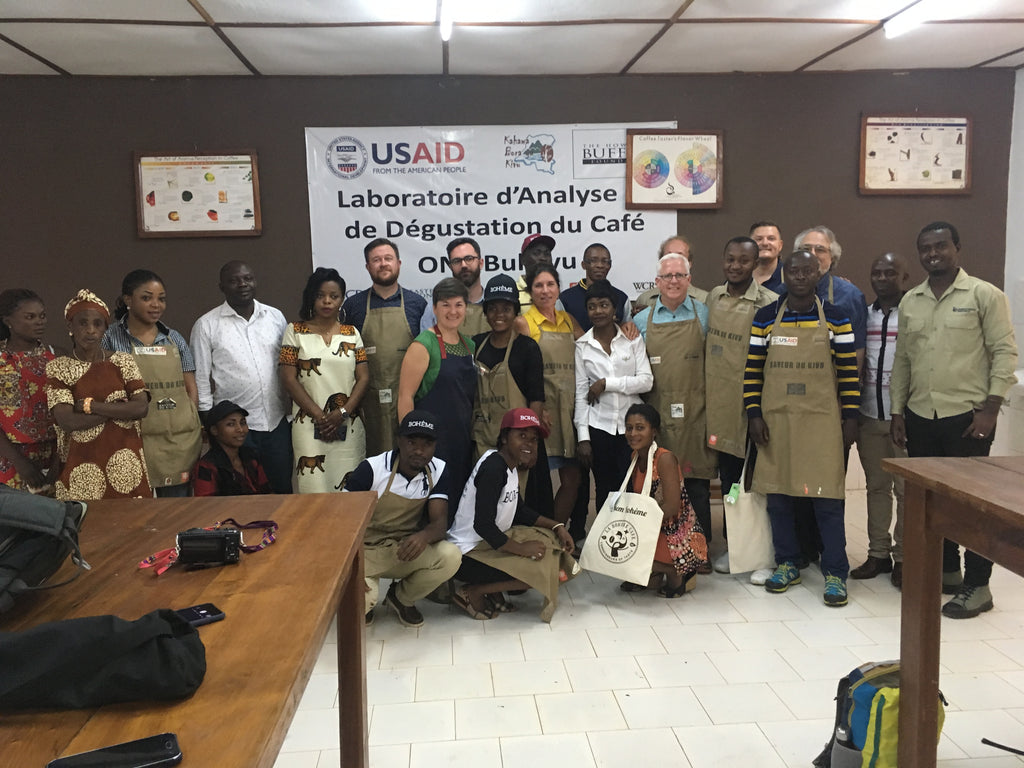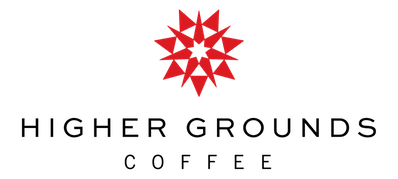
Coffee is one of the most traded agricultural exports in the entire world. It supports an utterly enormous industry. In 2018, global coffee exports alone were worth $30.9 billion, according to the OEC. It supports the livelihoods of hundreds of millions of people around the world, and is a hugely important driver of economic growth.
However, just like any industry, it is not without its challenges. Among the difficulties that coffee production faces are low prices, climate change, pests and disease, lack of access to labor, and more.
To learn more about these challenges and how we can address them, let’s hear from Jennifer Yeatts, our Director of Coffee at Higher Grounds Trading. She says that collaboration across the supply chain is key to addressing these difficulties, and driving true social impact.

How Can Collaboration Drive Change?
“I think most folks would agree that keeping the coffee industry solvent is a priority,” Jennifer says. “So, we set our sights on projects that keep coffee farmers farming, mills milling, co-operatives co-operating, exporters exporting, buyers buying… you get the idea. Our collaborations will be strengthened by a shared interest in the goal.”
Jennifer explains that the healthiest and successful collaborations are born out of trusting human relationships. As trust increases, so too does communication. This improves both transparency and understanding, as well as helping stakeholders in the wider supply chain to share knowledge and learn from each other.
For example, when a producer has a trusting, communicative relationship with a buyer, they can learn more about their target market and their preferences. Conversely, buyers can then understand farmers’ needs, provide feedback and get to know more about their coffee and the people who grow it.
The same happens when working together with other actors, even when they can be technically competitors. Mutual empathy can lead to a better understanding of issues and to find solutions. “When we join our energies and efforts towards making a difference in the lives of coffee producers, we maximize our impact,” Jennifer says.
She adds that this impact doesn’t just manifest in financial stability, but also improves the wellbeing and trust of wider coffee producing communities. “Collaboration builds social capital, and social capital breeds goodwill and even more trust,” Jennifer explains. “It ends up being a sustainable cycle that can grow and repeat itself.”

Kyle Tush of Counter Culture Coffee, Jennifer Yeatts, and Ismael Lipanda of the Muungano cooperative at Saveur du Kivu in 2018
Collaboration in the Democratic Republic of Congo
In terms of natural resources, the Democratic Republic of Congo (DRC) is one of the richest countries in the world. However, decades of conflict, war, and political instability have had a significant detrimental impact on the nation’s economy.
While coffee was the DRC’s second-largest export in the 1980s (after copper), it has since struggled. Conflict throughout the 1990s and early 2000s saw it take a significant hit, but it is now on the road to recovery.
As the profile of Congolese coffee improves, it could prove to be a path forward for both economic development and social stability. “The DRC is perhaps the one coffee origin where collaboration is the most necessary,” Jennifer says.
“This country has had a rough time for decades now, and the challenges continue: [they include] extreme poverty, violent conflict, and a lack of infrastructure from the top down. Cross-sector collaboration is really the only reliable way to address these issues; no single entity has the solution on its own.”
She explains that Saveur du Kivu (SdK) is an example of what she means by cross-sector collaboration. SdK is an annual coffee conference and auction which takes place in Bukavu, South Kivu. It has run every year since 2015, and has been the end result of a huge collaborative effort in which businesses, non-profit organizations, governments, and other stakeholders all work together.
“[At SdK], Congolese coffee producers now have a structured opportunity to come together and learn from each other,” Jennifer says. “Here, they can share their experiences and gain more context about a global industry that helps them to access buyers.
“As a side benefit, those who have traveled to DRC from around the world also get to connect with producers personally and continue to build interest and excitement for Congo’s amazing coffee.”
She adds that these connections allow people in the DRC to learn from each other and benefit from sharing resources. This way, farmers not only get recognition for their coffee, but also fresh insight about the wider industry and international coffee consuming markets.
“This all builds professionalism and pride in [producers’] work and their crop,” Jennifer says. “It shows them what they’re doing is valuable and valued, and gives them a desire to continue working for a better, stronger industry that benefits local communities and local people.”

Driving The Sector Forward
In the DRC, we also work through our partner non-profit, On the Ground. Together with On the Ground, we are working on gender equity and literacy workshops in a number of different coffee communities across the Kivu region.
“These initiatives are organized by OTG’s program coordinator, Herman Lwango, who is based in Minova,” Jennifer explains. “They are building the capacity for leadership skills within farming co-operatives. In particular, women are now finding leadership roles and autonomy in their work, and gaining respect within their communities.”
She also adds that OTG is collaborating with ELAN RDC to publish a market engagement guide and advice for Congolese coffee farmers, with the aim of improving market access. Finally, she notes that Higher Grounds has been working with Perfect Daily Grind in order to broaden our reach and provide more insight about the coffee industry in the DRC.

Herman Lwanga at his desk in the On the Ground office, Minova, DRC
photo credit: Diana Zeyneb Alhindawi
Driving change and positive impact in a country like the DRC is not easy. It’s not something that can be done quickly, either. However, through collaboration and working across the entire supply chain, we share expertise and knowledge with our partners and other stakeholders. This is a key part of unlocking the potential of the Congolese coffee sector.
“We need to share our expertise and resources in order to work together,” Jennifer explains. By doing so, we maximize our impact, not just in the producing country, but all across the supply chain. As a result, everyone benefits.”

The flag of DRC, waving proudly
